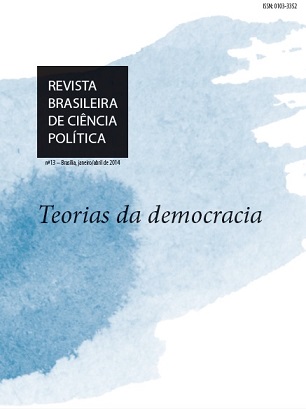Da honra ao patrimônio: conflito social e instituições políticas nos Discorsi de Maquiavel
Resumo
Resumo
Uma das mais radicais inovações de Maquiavel na tradição de pensamento político republicano é a tese de que o conflito entre a nobreza e a plebe foi a “causa primeira” da liberdade da antiga república romana. Mas, assim como o conflito social pode causar a liberdade, ele pode também resultar na corrupção e na tirania, exatamente como Maquiavel afirma ter ocorrido em Roma a partir de certo momento. Discuto as relações entre conflito social e instituições políticas em Maquiavel, de modo a indicar as condições que explicam os efeitos positivos e negativos dos conflitos. Por meio do exame da discussão de Maquiavel sobre a Lei Agrária dos irmãos Graco, o paper sugere que o fim dos efeitos virtuosos do conflito social coincide com a mudança de atitude da nobreza frente à s novas demandas da plebe. A nobreza abandona a reação institucional e assume uma reação violenta, por meios extraordinários, quando o objeto do conflito se desloca da divisão de honras para a divisão de patrimônio.
Palavras-chave: Maquiavel, conflito social, instituições políticas, liberdade, reconhecimento, redistribuição.
Abstract
The thesis of the conflict between nobles and plebeians as the ‘prime cause’ of freedom of the ancient Roman republic is one of the most innovative changes made by Machiavelli in the tradition of republican political thought. However, according to Machiavelli, in the same way that social conflict can generate freedom, it can generate corruption and tyranny, exactly as it started to happen in Rome after a certain point in time. I will discuss relations between social conflict and political institutions in Machiavelli in order to show the conditions which explain the positive and negative effects of social conflicts. By means of an analysis of Machiavelli’s discussion of the Gracchi brothers’ Agrarian Law, the paper suggests that the end of the virtuous effects of social conflict coincides with the change in the nobility’s attitude regarding the new plebeian’s demands. The nobility gives up its institutional reaction and initiates an extraordinary and violent behavior after the dislocation of the subject of the conflicts from honors to property.
Keywords: Machiavelli, social conflict, political institutions, freedom, recognition, redistribution.


